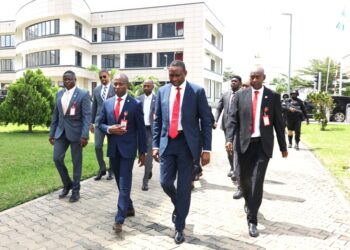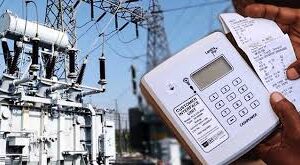‘…There’ll no longer be monthly contributions’
…Only shareholders can approve spending – Ilias
‘…States need to re-strategise’
‘…FIRS can fill the void’
In what has become an official endorsement, the Nigeria National Petroleum Company Limited (NNPCL) would no more make its usual monthly contributions to the Federation Account Allocation Committee (FAAC), but this will now come in form of royalties and dividends. This, to some Nigerians, may worsen the country’s revenue shortfall. BENJAMIN UMUTEME seeks experts, stakeholders’ views in this report.
When the Petroleum Industry Act (PIA) was signed into law, it heralded a new beginning for Nigeria’s petroleum industry which has, however, remained stagnant due to a lack of new investment and laws that would open up the industry for growth.
According to experts, the new company is expected to declare profit to the government as opposed to the previous regime where it was mandated to fund the Federation Account monthly.
However, the path to profitability and delivery of long-lasting dividends to its over 200 million shareholders is hinged on the adoption of the principles of corporate governance which must be allowed to influence actions and decision-making.
FG’s reasons
“We have given them (NNPC) independence; I am now part of the government. NNPC Ltd had to come up with a corporate structure that will work for them. Of course, government will step down and we as shareholders will expect NNPC to perform properly and declare dividend to us,” the Minister of State for Petroleum Resources, Timipre Sylva, had said at t the Rebirth of the NNPCL.
Throwing more light on Sylva’s disclosures, the Minister of Finance, Budget and National Planning, Mrs. Zainab Ahmed, said NNPC’s transition to a limited liability company meant that the company would no longer be contributing to the monthly Federation Account, but would take care of subsidies or under-recoveries.
Mrs. Ahmed told journalists and CSOs at the public consultation on the Medium Expenditure and Fiscal Strategy Paper (MTEF-FSP) in Abuja that the new arrangement indicated that NNPC would contribute monthly to the Federation Account as was the case in the past.
According to her, NNPC will be paying royalties, dividends and taxes.
“So, while the revenue might not be monthly, we will work on an arrangement on how this will be paid. And it is possible to work out an arrangement where the payments could be monthly or quarterly.
“NNPC has been paying for subsidy, but they are doing it on behalf of the federation, on the cost of the federation, even though they are the ones that have been paying.
“So, when they generate revenue, instead of remitting the revenue they are using part of the revenue or all of them to fund the subsidy. That has been the arrangement and that is what will continue to be in place until we exit the first time scenario one.
“So, I was just saying that a new arrangement regime, NNPC will not be contributing to FAAC (Federation Account Allocation Committee) on a monthly basis, but NNPC will still be paying taxes, royalties and dividends.
“We will be engaging the NNPC on how we expect this to come. We can negotiate how these remittances will be done on a quarterly basis for example. But let me also say that prior to the NNPC transiting, for about eight months, we have not been receiving any revenues.”
Experts’ views
A public affairs commentator, Mohammed Salihu, in his reaction, said the NNPC Ltd. would make cuts from its monthly remittances to the Federation Account Allocation Committee to pay for fuel subsidies spent per litre of petrol used across the country.
“With subsidy projected to hit about N4 trillion by the end of this year, it will affect the ability of some states to pay salaries, or settle their financial requirements, especially those that are majorly dependent on federal allocation,” he said.
A look at the country’s MTEF-FSP revealed that as of April 2022, the federal government’s retained revenue was only N1.63 trillion, 49 per cent of the pro rata target of N3.32 trillion.
The implication is that debt service cost in the first quarter of 2022 gulped N1.94 trillion, N310 billion higher than the actual revenue received during the period.
NNPC’s new face
A political economist, Aliyu Ilias, told this reporter that the only difference between the former NNPC and the privatised NNPCL is that every spending will have to go through its shareholders. And the federal government still remains its biggest shareholders.
He said: “The only difference is that no one can bring money out without going through the shareholders. The government will still rack in some proceed and it will go into the federation account.
“There will be more efficiency in NNPC. Look at Saudi Armaco or BP; they bring more to the government. The only is that now that it is private, they should give us a refinery. Except they give us a refinery, Nigeria will still be subjected to global price and this global price is what we are suffering now.
“Ideally, if subsidy is removed from PMS, we’ll be paying over N300 per litre. The argument is that in Africa, it is only Nigeria that pays less, and it is because they think we have the oil. What we need now is to make sure our refineries are working. We are still waiting for Dangote to come on board by December and it will be a relief. The government will now have much tax coming from NNPC.”
Ilias noted further that it would impact on the Federal Inland Revenue Service (FIRS) as it means more revenue for the government if it properly harnesses the opportunities created by the new arrangement.
“If you look at FIRS, they tax at different levels. It is now that they will even generate more taxes. People believe that it is the government; so it is sometimes difficult for people to ask them for tax, but now that it is a private entity, every truck will be taxed. Before now, if you saw any truck that was written NNPC, you wouldn’t want to stop it, you wouldn’t want to tax it, but now that it is privatised that would change.”
Re-inventing the wheels
Speaking with Blueprint Weekend, a development researcher, Adefolarin Olamilekan, noted that with NNPC’s privatisation, it was time for states to re-think their economic strategies and governance structure.
According to him, it is time for states to re-invent and re-focus their economic governance structures.
He said Nigerians had been waiting for a time that states would be forced to devise new ways to ‘fend’ for themselves, adding that it would redirect the thinking of state executives toward re-energising their fiscal policies.
“This latest development, it presents an opportunity for the states to rethink and re-strategise the channel of their IGRs. The sub-national government should be able to demonstrate financial astuteness and leadership in IGR and economic governance in their respective domains.
“This, for me, is an opportunity for state and local governments to think of how they can be part of this deregulation development from the angle of building their own refineries through Public Private Partnerships (PPPs).
“Another one is that states, the FCT and local governments must prioritise their financial obligations from the standpoint of focusing on infrastructure projects to attract choice investors.
“This is to help them to rave up IGRs with a much friendly business environment and quality public services outing. This means that investors will be attracted to states with good network of roads, accessible lands for build factories and coordinated and harmonised taxes, service charges and fees system. And this is what will increase IGRs in the true sense of it.
“In addition, the sub-national government also has to face the reality of cutting down excesses on the government house jamborees that tend to throw monies at problems, venturing into empowerment programmes in the name of creating jobs; these have to stop, especially giving out monies. What they need now is to build factories that could employ youths in thousands; and they have the private sector to partner with.
“Furthermore, it’s now time for state executives to think about venturing into mining and exploration businesses. This alone is the biggest opportunity they must not shy away from. It is also an opportunity for sub-national governments to re-invent their state-owned investment agencies into commercial entities beyond state bureaucratic consumption entities.”
‘In dire straits’
When the chairman of the Governors’ Forum, Kayode Fayemi, decried the “shrinking allocations to states” occasioned by the NNPC no longer contributing to FAAC, many knew the states were in a bad state financially.
Since January, NNPC has not remitted its monthly statutory contributions to the federation hinging it the burden of under-recovery (subsidy) which it bears on behalf of the federal government.
As it stands, the 36 states and the FCT are in dire position and are desperately looking for means to carry out their obligations.
Revenue allocation to federal, state and local governments declined from a peak of N970.57bn in July 2021 to N680.783 billion in May 2022, representing a 30 per cent reduction over the period.
The decrease in allocation to these levels of the government reveals the fiscal challenges facing various levels of government in Africa’s biggest economy.
Nigeria earns its biggest revenue from crude oil, but it has paid N2.1tn in the first six months of the year as fuel subsidy and could pay another N4tn by the end of the year, according to the International Monetary Fund estimates.
The situation is worsened by declining oil production and theft. Oil production fell to 1.2 million barrels per day in April 2022 from 1.238 million barrels in March, according to OPEC Monthly Oil Market Report.
This is far from the oil benchmark of 1.88 million barrels per day in the 2022 budget.
Latest data from the Central bank of Nigeria also showed that States debts have increased to N1.24 trillion from just over N14 billion in April 2016.
The yearly breakdown of debts shows that states as at December 2016 had a debt stock N300.38 billion and N590.42 billion the following year.
States’ debt to the CBN declined gradually to N600.62 billion in October 2021 from N614.92 trillion in September 2019, but rose to N700.47 billion in December last year.
However, the CBN latest data revealed that the debt had increased to N1.24 trillion in June this year.
The states’ increased borrowings followed dwindling FAAC disbursements to states, which according to the National Bureau of Statistics dropped from N640.16 billion in the fourth quarter of 2021 to N590.45 billion in the first quarter of this year.
Aside from CBN, the states are also indebted to domestic investors including banks.
Debt Management Office (DMO) in March reported that the states’ debt stock stood at N4.84 trillion.
Lagos, Ogun, Rivers, Imo, and Akwa Ibom states are the five most indebted states with N1.65 trillion which is over a third of the domestic debt.
The DMO data showed that Lagos, with a total debt of N780.5 billion as of March is the most indebted state in Nigeria with 16.26 percent of the sub-national debts.
Ogun followed with N242 billion while Rivers Imo and Akwa Ibom had N225.5 billion, N204.6 billion, and N203.1 billion, respectively.
And the Minister of State for Budget and National Planning, Prince Clem Agba, warned that national and sub-national governments might find it difficult to fulfill their obligation by 2023 if the government continues on the futile payment of fuel subsidy.
“Now, if you look at scenario one, it means that we will not have any capital expenditure in 2023. There’ll be no capital expenditure at all, and taking care of recurrent expenditure will be a huge challenge with a scenario 2 where we’ll say let’s take it out by June. It means we only have about one trillion left for capital expenditure,” Agba said.
Going forward
To navigate through this difficult situation, Olamilekan opines that the FIRS must begin to take advantage of the situation to increase it tax collection rate.
While praising the work the management of the tax body has been doing, he said FIRS must begin to employ innovative ways to increase the government’s revenue that comes from tax.
“At this point we must acknowledge the feat so far achieve by FIRS current management and professional staff. Deployment of smart innovation in collections has made a huge difference in business of tax collection in the history of the nation. With FIRS systemic and systematic that embraces high tech collection management. The service was very much up to date in the nation tax businesses they fit perfect for government fiscal policy.
“Howbeit, the latest development in the oil and gas sector with the privatisation of NNPC and stoppage of remittance to FAAC.
“The thinking in the NNPC will be on the best way to improve collection. In this wise, NNPC must not only reinvent itself but also re-synergise with all stakeholders in order to get the best way going forward. What this means is that the success FIRS would record going forward lies more on how the service engage with all stakeholders.
“Secondly, FIRS must show commitment to transparency, accountability and prudency in its collection. Thirdly, there is also need for the service to review some of it strategise for efficiency and effectiveness.
“Fourthly, it must strengthen it inter-agency collaboration in order to enhance collection, stop sharp practices and inter-agency rivalry. Lastly, the Service can also show interest in consistent quality welfare for staffs and Corporate Social Responsibility (CSR) if the act that established it permits such.”




